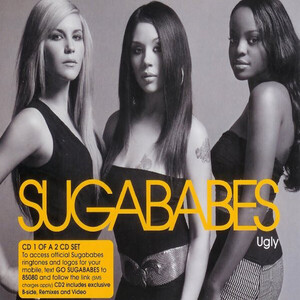Released: 5th December 2005
Writers: Dallas Austin
Peak position: #3
Chart run: 3-6-12-8-7-11-20-20-27-28-30-41-59-63-72
The Sugababes, it seemed, were indeed taller in more ways when they released Ugly. But however important the song’s message was, it inevitably got overshadowed by the departure of Mutya Buena from the group’s lineup soon after.
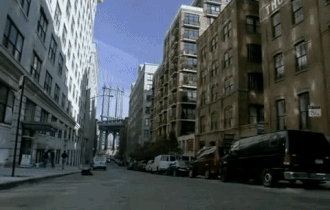
Despite persistent reports of in-fighting and an expectation by the press that after three studio albums, a greatest hits collection – followed by a split – beckoned for the Sugababes, there had never been any real reason to think that would happen. If anything, the success of Hole In The Head in America, minor though it was (the track reached #96 on the Billboard Hot 100 in 2004), raised the genuine possibility of an international breakthrough. The group’s fourth album, Taller In More Ways, did feel partly conceived to do just that due to the involvement of Dallas Austin, who’s written and produced over 50 hit singles for acts including Madonna, P!nk, Gwen Stefani, Michael Jackson, TLC and Usher. Yet, the album still sounded unconditionally like the Sugababes and proved hugely successful. Lead single Push The Button earned them a fourth #1 hit, and it was joined by Taller In More Ways, which became their first chart-topping album. The group’s appeal proved impressively resolute.
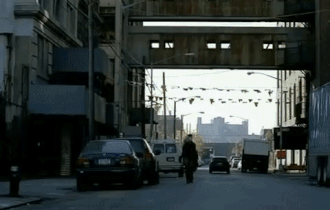
Yet, a song was needed to keep the Sugababes visible with the festive season fast approaching and Taller In More Ways outside the top 20 after six weeks. That does feel like part of the thinking behind Ugly (there had to be some logic for not releasing Ace Reject…). It isn’t Christmassy, as such, but a radio-friendly mid-tempo – filled with jangly guitar riffs and a twinkling keyboard accompaniment – that showcased a softer side to the group was a perfect album-seller. It might have been a calculated (and somewhat transparent) move, but Ugly is single-worthy, nevertheless.
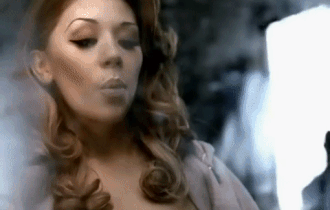
The track drew thematic comparisons with Christina Aguilera’s Beautiful and TLC’s Unpretty, which is fitting in regard to the latter because it had also been (co)written by Dallas Austin. Ugly had been conceived after he was sent cuttings of negative press reports about the Sugababes. Though their music often drew critical acclaim, the group were frequently characterised as being moody and unfriendly (allegations of bullying arose at various times throughout their career). Furthermore, like all female pop acts, they were routinely judged on their appearance for no reason whatsoever. All of that found its way into Ugly.
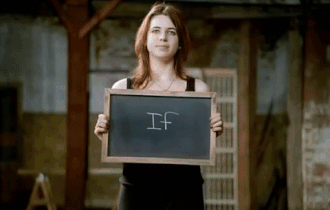
It could come off as trite in the wrong hands, but Dallas Austin creates a song entirely believable as something the Sugababes would say. Not least because the lyrics adopt a personal perspective: “When I was seven, they said I was strange, I noticed that my eyes and hair weren’t the same, I asked my parents if I was okay, they said you’re more beautiful and that’s the way”. While the words in themselves are touching, they resonate more strongly because of the way the group were often portrayed as being so aloof. Hearing them share insecurities – even if they didn’t write the words – reframes where the Sugababes were at four albums into their career.
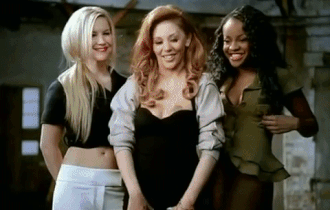
There’s a quality about Dallas Austin’s songwriting that creates space within Ugly for the group to tell stories. The verses never outstay their welcome, nor do they rush to the point. Keisha Buchanan’s is particularly compelling: “There was a time when I felt like I cared, that I was shorter than everyone there, people made me feel like life was unfair, and I did things that made me ashamed, ‘cos I didn’t know my body would change…” because it culminates in an eventual pay-off with the line that inspired the album’s title: “…I grew taller than them in more ways”. The way that additional context helps define the meaning does, in many respects, put Ugly at the heart of the album both literally (it’s right in the middle of the tracklist) and figuratively.
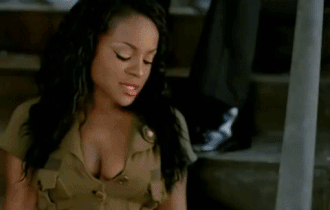
Crucially, many of the traits that earned the Sugababes such critical and commercial acclaim are still present in the song, even if they’re expressed – deliberately – in an inoffensive, toe-tapping, radio-friendly manner. Heidi Range’s middle eight brings some (measured) drama: “Everybody talks bad about somebody and, never realise how it affects somebody and, you bet it won’t be forgotten, envy is the only thing it could be…” and culminates in gorgeous ad-libs that echo around the instrumental breakdown. Meanwhile, the naggingly catchy chorus: “People are all the same, and we only get judged by what we do, personality reflects name, and if I’m ugly then so are you, so are you” is performed with the group’s effortlessly smooth trademark harmonies. They mightn’t be front and centre in the same way as a song like Too Lost In You, but are still very much present and demonstrate – as if any further proof were needed – just how versatile the Sugababes are.
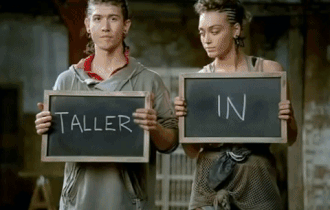
The music video for Ugly is centred – unsurprisingly – around the theme of people not being defined by their appearance. However, despite the gravity of the message, the concept is presented as an upbeat celebration of personality rather than taking a more sombre approach. In a New York warehouse, the Sugababes are joined by a slew of extras auditioning for what, in hindsight, reads as a riff on the Got Talent franchise, except neither the American nor British version had yet premiered in 2005. A range of skills is demonstrated by acts, including dancers, illusionists (Mutya appears somewhat bemused at being presented with a dove conjured out of thin air), jugglers and comedians. Interspersed are shots of them holding chalkboards showing lyrics from the song, which culminates with the message: ‘People are all the same’ and ‘Don’t be afraid to be you’. There’s no subtlety in how the video handles Ugly‘s moral lesson. Still, it’s presented in an immensely likeable way that stops short of coming across as judgemental or preachy.
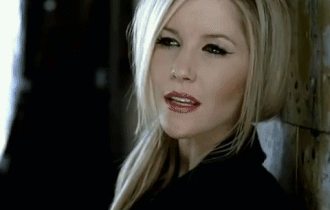
One blink-and-you’ll-miss-it moment in the visuals did catch fans’ attention, though. It occurs near the end and is framed with the Sugababes in the background of the shot. In the foreground is a young woman turned away from the camera and leaning against a pillar, watching on. Just enough detail is visible from the shadows to draw a resemblance with Siobhan Donaghy. The likeness could be dismissed as a mere coincidence (and that may still be the case), but there must have been some intention to feature it in the first place. Particularly when there’s no way fans of the group wouldn’t see similarities in the woman’s physical appearance. Instinctively, it feels there’d be no real reason to rake up the past four years after Siobhan quit. But then, that’s partly what Ugly is all about, and she still existed as part of the Sugababes’ journey, even if she was no longer an active member of the group (at that point).
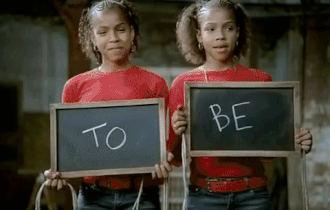
Ugly went on to be another big hit for the Sugababes and did everything it needed to in terms of stabilising the album campaign. The track debuted and peaked at #3 in the UK, spending two months in the top 20 and also topped the airplay chart. Despite being released late in the year, it was the 72nd biggest-seller of 2005 (72,600 copies), the 134th biggest-seller of 2006 (59,500 copies) and remains the group’s seventh-biggest single overall. Ugly also had the desired effect on Taller In More Ways, which rebounded to #8. At this point, it felt that the Sugababes had organically grown their sound and image, leaving the album brimming with potential. There would be several further singles…but not before a seismic change.
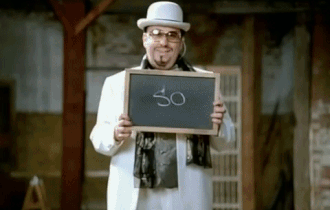
On December 21st – just weeks after Ugly was released – Mutya confirmed she had quit Sugababes. The statement was civil and presented as a planned departure that Keisha and Heidi were fully aware of. So much so that they announced Amelle Berrabah as a replacement within 24 hours. There was a bit more to the reasoning behind Mutya leaving; she later revealed she’d been suffering post-natal depression that was exacerbated by the pressure put on her to resume working with the group so shortly after giving birth.
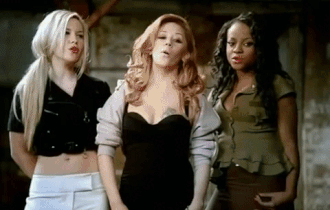
Mutya’s departure didn’t immediately pose many problems for the Sugababes as Amelle deftly stepped in to see through the rest of the Taller In More Ways campaign. Indeed, the third line-up was the one that eventually went on to score the group’s biggest hit. Even so, something had undoubtedly shifted how the Sugababes were regarded from this point onwards. The propensity for switching members became an underlying narrative (replacing their reputation for moodiness to a certain extent). It wasn’t – yet – a derisory issue, but the way Amelle was so swiftly introduced and the wheels of the group kept turning as though nothing had happened did perhaps feel a little too slick. Especially when their next album was a greatest hits, which drew attention to Mutya’s legacy across the material. Suddenly, the Sugababes lost a bit of their edge and became more about an end product – albeit a still very good one – whose parts were seemingly interchangeable.
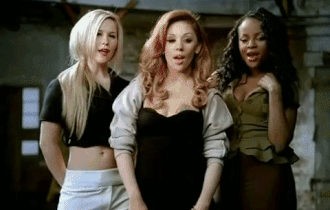
The wholesomeness of Ugly isn’t necessarily what would immediately be associated with Sugababes 2.0. However, as a swansong for this iteration of the group, it captures a moment where Keisha, Heidi and Mutya genuinely appeared to be taller in more ways and a stronger unit than ever…for a few weeks, at least.

